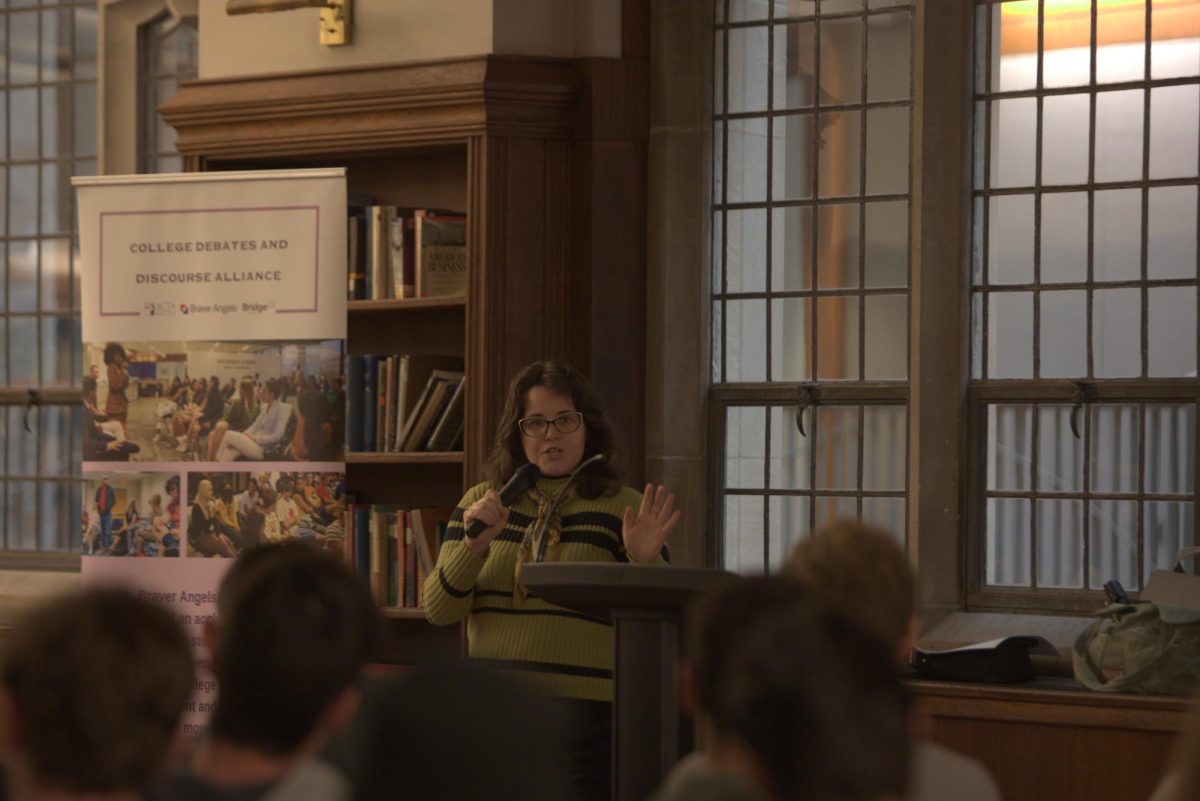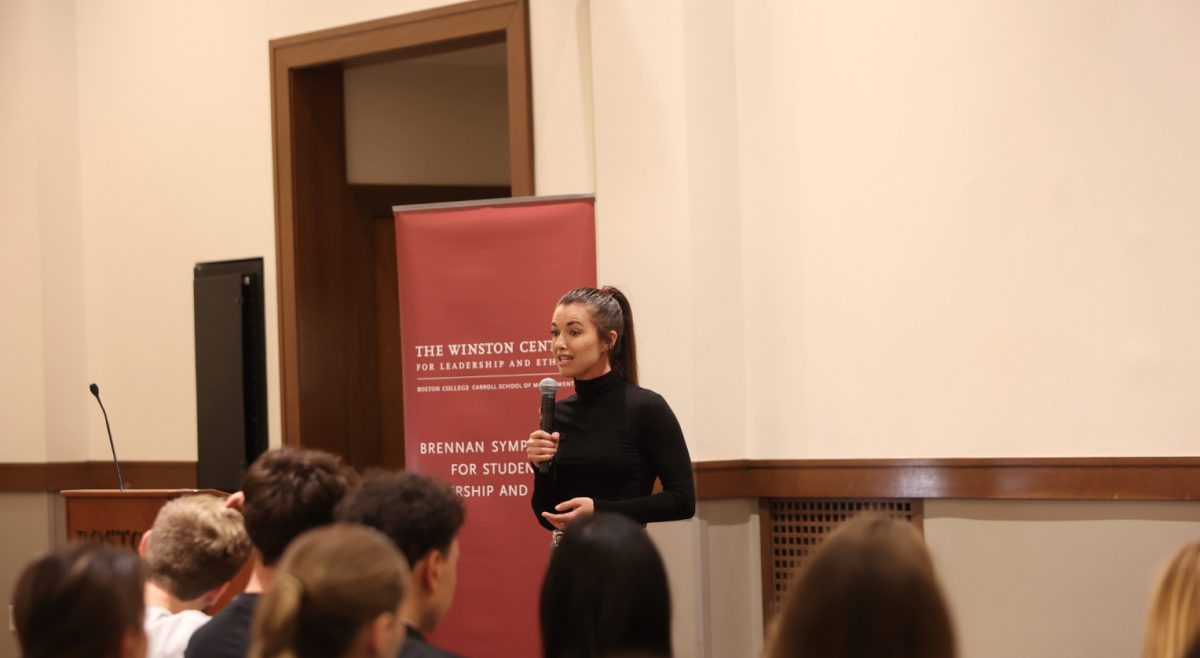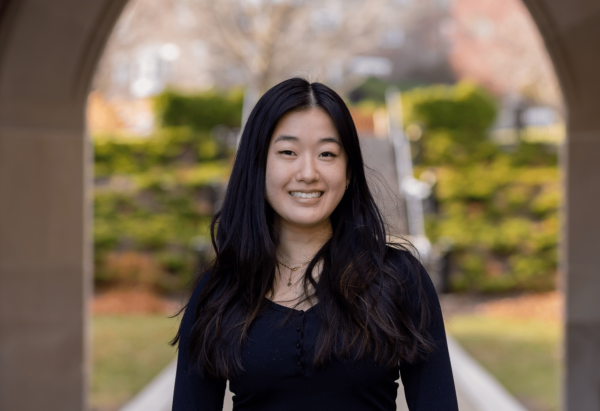According to Ed Lambert, the Massachusetts Comprehensive Assessment System (MCAS) is an essential component of Massachusetts’ educational system.
“We have a common assessment that we call MCAS in Massachusetts,” said Lambert, the executive director of the Massachusetts Business Alliance for Education (MBAE). “And the research has shown that MCAS is a very strong predictor of college and career success.”
The MCAS is a statewide standardized testing program required for every student in the Massachusetts public school system. On Nov. 9, Lambert and President of the Massachusetts Teachers Association (MTA) Max Page debated whether the MCAS should be a determinant for high school graduation.
The event was part of the Greater Boston Debate Series hosted by the Boston College Law School Rappaport Center for Law and Public Policy. It was moderated by Mandy McLaren, a reporter for The Great Divide, which is an investigative team focused on educational inequities at The Boston Globe.
“Our goal is to have dynamic conversations among experts with powerful moderators that illuminate the various sides of issues, which can get messy, but are conducted with the objective of educating all of us,” said Elisabeth Medvedow, executive director of the Rappaport Center.
On the opposing side of the debate, Page argued that the MCAS should be eliminated, saying it is unfair to assess a student off one test score.
“For 20 years … public school and college educators … maintain it is educational malpractice to judge students in schools with a one-time test score,” Page said. “They have told me that the high-stakes testing regime is corroding an organic passion for learning.”
Page also said the quality of the Massachusetts school system is not determined by high MCAS scores but by quality curriculum.
“We entrust our educators and the school committees and superintendents and principals to develop a curriculum that helps us achieve those [standards],” Page said.
According to Page, studies have shown that compared to test scores, student grades—both in Massachusetts and across the country—are more reflective of their abilities and less biased toward race and income.
“The MCAS does far more to measure a family’s income and education than it does to actually measure achievement,” Page said. “If you give me your zip code, I will tell you the average MCAS score and I will be right nine times out of 10.”
Lambert disagreed with the notion that a student’s success could be defined based on their zip code and background. He argued that the MCAS was not the cause of the disparity but rather a reflection of achievement gaps.
“I think that when you see a disparity based on race and income in that [test score], that’s really reflective of achievement gaps generally across the K-12 system and work that we just have not made enough progress on,” Lambert said.
Lambert said that the MCAS is not a perfect measurement of student achievement, but it will continue to evolve.
“We should always seek to evolve and improve all of our practices, but when you have something that works, you should keep it, evolve it, improve it, and build upon it, not eliminate it,” Lambert said.
Both parties agreed on their support of the Student Opportunity Act of 2019, which was designed by the commonwealth to ensure that every student in Massachusetts would experience high-quality learning opportunities leading to their future success.
“Money matters in education, which is why MTA members fought so hard to secure passage of the Student Opportunity Act in 2019, which will bring in an additional $1.5 billion a year into Massachusetts public schools by the 2027 school year, especially benefiting the lowest income districts,” Page said.
In her closing remarks, Medvedow summed up the debate by saying that ultimately, both sides have the same goal: to educate the public about vital issues that impact their own communities.
“I know we all share a common goal of using your forwards, lifting up all the students, and helping ensure that every student in this Commonwealth achieves success defined extensively,” Medvedow said.














